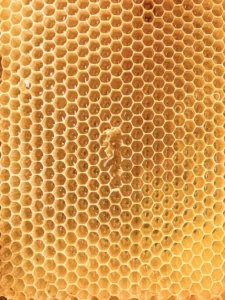Table of Contents
Maintaining good oral health is essential for overall well-being. While regular dental care practices like brushing, flossing, and visiting your dentist are crucial, incorporating unexpected natural remedies can further enhance your oral hygiene routine. One such remedy is Manuka honey, known for its antibacterial and fast-healing properties. Manuka honey has gained popularity as a versatile ingredient for promoting oral health.
What is Manuka Honey?
Manuka honey is a unique type of honey produced by bees that pollinate the flowers of the Manuka bush (Leptospermum scoparium), native to New Zealand and parts of Australia. What sets Manuka honey apart from other types of honey is its exceptional antibacterial properties, primarily attributed to its high concentration of a compound called methylglyoxal (MGO). This compound makes Manuka honey an effective natural remedy for various health issues, including oral health.
When looking for authentic Manuka honey, it’s important to consider its Unique Manuka Factor (UMF) or MGO rating, which indicates the level of antibacterial activity and potency. The higher the UMF or MGO rating, the more potent and beneficial the Manuka honey will likely be.
The Difference between Manuka Honey and Regular Honey
Manuka honey and regular local honey differ significantly in composition, flavor, and health benefits. Here’s a comparison of Manuka honey versus regular local honey:
Source and Plant Origin
Manuka Honey: Produced by bees that pollinate the Manuka bush in New Zealand and Australia.
Regular Honey: Derived from the nectar of various flowers in the local region where the bees are located.
Unique Compounds
Manuka Honey: Contains a high concentration of methylglyoxal (MGO), giving it potent antibacterial and antimicrobial properties.
Regular Honey: Contains various enzymes and antioxidants, but generally has lower MGO levels than Manuka honey.
Antibacterial Properties
Manuka Honey: Due to its high MGO content, Manuka honey has exceptional antibacterial and immune support properties.
Regular Honey: Also has some antibacterial properties, but may be milder than Manuka honey.
Flavor and Aroma
Manuka Honey: Has a distinctive flavor profile ranging from earthy and slightly bitter to rich and caramel-like.
Regular Honey: The flavor can vary widely based on the types of flowers the bees visit.
Uses and Applications
Manuka Honey: Used as a natural remedy for wound care, digestive health, skincare, and oral health.
Regular Honey: Commonly used as a sweetener in cooking, baking, and for general consumption.
Types of Manuka Honey
Manuka honey is available in several types, distinguished by their Unique Manuka Factor (UMF) or Methylglyoxal (MGO) rating. Here are some common types of Manuka honey based on their UMF or MGO ratings:
- UMF 5+ or MGO 83+: Suitable for general consumption, with mild antibacterial properties.
- UMF 10+ or MGO 263+: Offers moderate antibacterial activity, used for general well-being.
- UMF 15+ or MGO 514+: Has stronger antibacterial properties, used for wound healing, digestive support, and oral health.
- UMF 20+ or MGO 829+: High-grade Manuka honey with potent antibacterial activity, used for advanced health applications.
- UMF 24+ or MGO 1122+: Represents the most potent and therapeutic Manuka honey, used for wound care and specific health conditions.
- UMF 25+ or MGO 1265+: Extremely high-grade Manuka honey with exceptional antibacterial properties, sought after for specialized health purposes.
When purchasing Manuka honey, look for reputable brands that provide clear UMF or MGO ratings on their labels, along with information about the honey’s source and quality.
Benefits of Using Manuka Honey for Oral Health
Using Manuka honey for oral health offers several remarkable benefits, including:
Preventing Gum Disease
Gum disease, or periodontal disease, can lead to serious oral health issues if left untreated. The antibacterial properties of Manuka honey can inhibit the growth of harmful bacteria in the mouth, minimizing the risk of gum disease.
Soothing Mouth Ulcers
Manuka honey’s anti-inflammatory and healing properties make it an excellent remedy for soothing painful mouth ulcers. Applying a small amount of Manuka honey directly to the ulcer can promote healing and alleviate discomfort.
Fighting Bad Breath
Bad breath, or halitosis, can affect your confidence. Manuka honey’s antibacterial action can help control the growth of odor-causing bacteria in the mouth, resulting in fresher breath.
Cavity Prevention
The antibacterial properties of Manuka honey may help prevent the formation of cavities by reducing the growth of Streptococcus mutants, a bacteria commonly associated with tooth decay.
Supporting Overall Oral Hygiene
Incorporating Manuka honey into your oral care routine can complement traditional dental practices. It can be used as a natural mouthwash or added to toothpaste to enhance its effectiveness.
Tips for Using Manuka Honey for Oral Health
To maximize the benefits of Manuka honey for oral health, consider the following tips:
- Choosing the Right Manuka Honey: Look for Manuka honey with a high MGO rating, as this indicates its antibacterial potency.
- Direct Application: For specific oral issues like mouth ulcers, apply a small amount of Manuka honey directly to the affected area. Leave it on for a few minutes before rinsing your mouth.
- Homemade Mouthwash: Create a natural mouthwash by mixing a teaspoon of Manuka honey with warm water. Swish the homemade solution in your mouth for 30-40 seconds, then spit it out.
- Enhanced Toothpaste: Add a small amount of Manuka honey to your toothpaste before brushing. Its antibacterial properties will complement the cleaning action of the toothpaste.
- Oil Pulling Blend: Incorporate Manuka honey into oil pulling, an ancient practice known for its oral health benefits. Add one tablespoon of coconut oil with a teaspoon of Manuka honey for an effective oil-pulling blend.
- Daily Consumption: Consuming a small amount of Manuka honey may also improve oral health. Spread it evenly on whole-grain toast or add it to your morning yogurt.
Precautions and Considerations
While Manuka honey offers numerous benefits for oral health, it’s important to use it wisely:
- Allergies: If you have allergies to honey or bee products, consult your healthcare provider before using Manuka honey.
- Children Under 1 Year: Due to the risk of infant botulism, avoid giving honey, including Manuka honey, to children under one year old.
- Consult Your Dentist: Before making significant changes to your oral care routine, consult your dentist, especially if you have existing oral health conditions.
In conclusion, Manuka honey’s remarkable antibacterial and healing properties make it an important addition to your oral care regimen. By incorporating Manuka honey into your routine, you can prevent gum disease, soothe mouth ulcers, fight bad breath, and support overall oral hygiene. Follow the practical tips and precautions mentioned in this article to harness the power of Manuka honey and maintain optimal oral health for a radiant smile for years to come.



